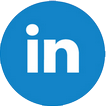Interview with Professor Patrick Dunne: “Three traits will endure in leadership: quality of judgement, interpersonal skills and the possession of excellent antennae.”

Professor Patrick Dunne OBE, renowned for his award-winning book "Boards" and author of three other successful books on the subject, is an experienced Chair with a wealth of experience working with boards across Europe, Africa, Asia, and North America. Patrick Dunne brings an extensive executive experience having spent over 26 years at Air Products and 3i Group plc, as Communications Director, member of the Operating Committee and Chairman of Operational Risk forum. His commitment to education is ongoing, as shown by his past involvement as a member of the General Council of the University of Warwick, along with his current roles as a Visiting Professor at Cranfield School of Management and an Associate Fellow at Warwick Business School.
Currently, he serves as the Chair of the board consultancy Boardelta and the charities The EY Foundation and ESSA- Education Sub Saharan Africa.
In the interview Patrick Dunne gave Envisia you will find out about key trends or shifts present in the recent years regarding board governance and leadership practices, main traits a board member or leader should have, and cross-cultural nuances or challenges in board dynamics
You can let yourself inspired by his expertise on April 13, 2024 at the Masterclass Challenges of The Independent Director Dealing with Decisions and Dilemmas, held in Poiana Brasov.
Join if you are a current board member or senior executive interested in proactive governance, a C-suite executive seeking to understand board service duties, or a consultant providing services to boards. The learning objectives include understanding contextual influences on board decisions, exploring adaptation in decision-making processes and board operations across sectors globally, and enhancing personal effectiveness through a board decision and dilemma simulator. More about the Masterclass here.
Professor Dunne, with your extensive experience working with boards globally, what key trends or shifts have you observed in recent years regarding board governance and leadership practices?
A world in flux, politically, socially and technologically has led to significant shifts in the way that boards are composed, the way they operate and what they spend their time on. The nature of the opportunities and risks organisations face have also changed and are influencing the degree of forward thinking, agility and resilience required.
As the needs of our times have shifted, so have the characteristics required of boards both collectively and individually. Greater diversity helps to understand and connect with a more complex world. Being more data and tech savvy, more actively open minded and ever more resilient have also been important. Additionally, we have needed to work with our executive colleagues in more flexible ways at the same time as being clear what our respective roles are.
Decision making has evolved from what might have been described as a "Maps World" with detailed time-based budgets and strategies to more of a "Satnav or GPS style world" where decision making processes are more data driven, flexible and context and condition based. We're making more decisions en route. Hence the growth in the use of dynamic budgeting and strategic framework approaches as opposed to more rigid budgets and strategic plans.
What are the main traits a board member / leader should have 10 / 20 years from now?
Three traits that I believe will endure in leadership are quality of judgement, interpersonal skills and the possession of excellent antennae. Good judgement of people and situations in the face of the torrent of dilemmas we are faced with is vital. Strong interpersonal skills are crucial in understanding situations as well as influencing others to choose and deliver the best outcomes. Excellent antennae are needed to inform those judgements and create empathy.
The ability to manage conflict well has become a necessary skill for all leaders and will grow in significance. As will the value of being data savvy and multi-culturally and multi-generationally adept.
In today's rapidly evolving business landscape, how do you perceive the role of boards in fostering innovation and adapting to technological advancements while maintaining effective governance?
Innovation, agility and the ability to turn ideas into successful business are all dependent upon having the right culture. High performing boards ensure that they know what culture they've got, what culture they need to turn their vision into a successful reality and agree with the executive leadership how to move from one to the other if they are different.
It's been exciting to see the way in which the evolution of big data and big data analytics has led to the development of new tools for gaining a better understanding of key aspects of culture. Vital in really knowing what vulture you have.
At the end of day, it's also hard to have an innovative, agile, tech savvy and effective culture without innovative, agile, tech savvy and effective people so high performing boards are also interested in the organisation's ability to attract, retain and maximise the impact of the diverse range of talent it needs.
With your vast experience across different continents, could you share some cross-cultural nuances or challenges you've encountered in board dynamics, and how you've navigated them to ensure effective collaboration and decision-making?
I grew up in Liverpool, a very cosmopolitan city, the son of Irish immigrants and have always been fascinated by different cultures. The value of different perspectives, ways of communicating and approaches to reaching agreement and to leading is enormous. As can be the frustration when we struggle to understand what people want and mean, how to motivate them and reach agreement or project national stereotypes upon us.
My late Irish grandmother told me as a small boy that it is really important to listen to what people say but even more important to listen to what they think. This advice has come in handy on numerous occasions in the boardroom. For example, one day in the US many years ago when I was asked for my view on a proposal and gave what I thought was a sensible balanced response. "The idea does seem to have considerable merit if we can get comfortable about the three most significant risk areas...". An American board member, who clearly thought that I was an idiot, didn't let me get to say what they were and how I thought we might get comfortable with them before he interrupted and said "This business is all about taking risk and I don't understand why you are being so negative. We're a lot more ambitious and entrepreneurial than you English. The team have put a lot of time on this, I think it's an awesome idea and we should go for it. Our job is to pick the management and then back them or fire them. "
I managed to recover essentially by apologising for my poor choice of words, saying that I was actually supportive of the idea but felt that we could strengthen the implementation plan considerably. I could see from the faces of other directors that they were uncomfortable with how aggressive their colleague had been and the Chair kindly gave the right-hand signals to him to let me speak. Gradually we reached what I felt was a much better position than simply being cheerleaders for the management and nodding the decision through. I had a follow up coffee with the guy who I had irritated and helped him see a more value adding role for the board.
A book tip on this topic is Erin Meyer's "The Culture Map" which has a pretty neat framework for understanding cultural difference and makes the point that cultural differences are not just confined to different regions but also apply to different organisations and generations.
Recommended articles
Digital Transformation & AI Governance
Leadership, Boardroom Dynamics & Crisis Response
Leadership, Boardroom Dynamics & Crisis Response
Governance & Board Effectiveness
Future of Boards & NED Careers
Future of Boards & NED Careers
ESG & Risk Oversight
Leadership, Boardroom Dynamics & Crisis Response
Governance & Board Effectiveness
Governance & Board Effectiveness
Leadership, Boardroom Dynamics & Crisis Response
Future of Boards & NED Careers
Governance & Board Effectiveness
Governance & Board Effectiveness
Governance & Board Effectiveness
Governance & Board Effectiveness
Future of Boards & NED Careers
Leadership, Boardroom Dynamics & Crisis Response
Future of Boards & NED Careers
 BACK TO ARTICLES
BACK TO ARTICLES
 Facebook
Facebook Linkedin
Linkedin
